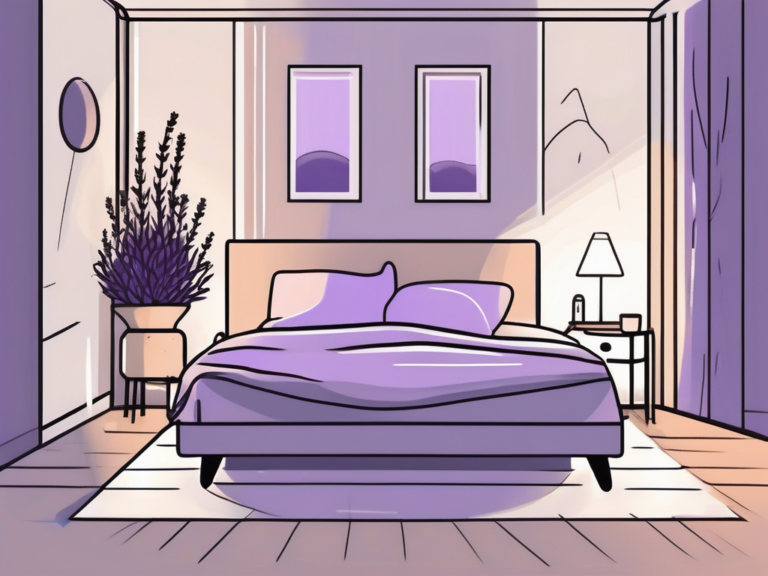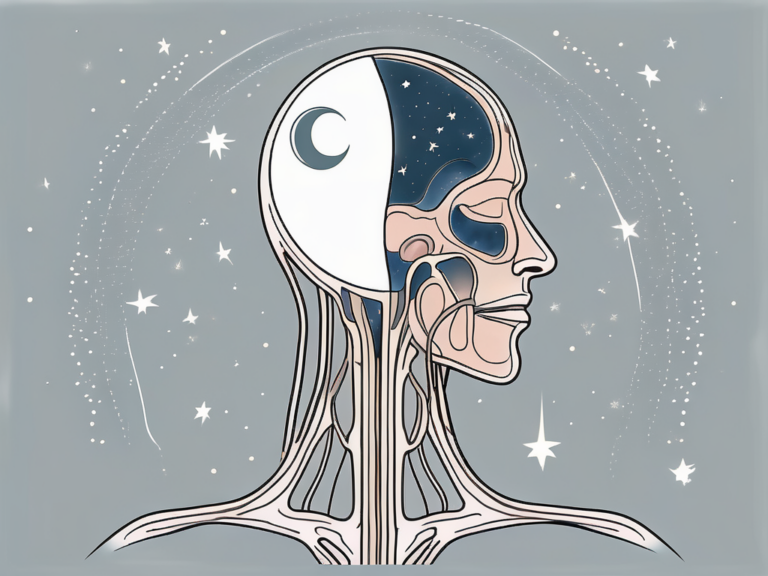Tips to Sleep When You Are Tired
Are you struggling to get a good night’s sleep? Waking up feeling tired and groggy can have a significant impact on your overall well-being and productivity. In this article, we will explore various tips and techniques to help you sleep when you are tired. By understanding the importance of quality sleep, identifying the causes of sleeplessness, and incorporating practical techniques into your routine, you can improve your sleep and wake up feeling refreshed and energized.
Understanding the Importance of Quality Sleep
Quality sleep plays a vital role in maintaining your physical and mental health. When you sleep, your body goes through different stages, allowing it to repair and rejuvenate. These stages include deep sleep, which is essential for muscle and tissue repair, and Rapid Eye Movement (REM) sleep, which promotes cognitive function and memory consolidation.
During deep sleep, your body releases growth hormone, which aids in the repair of damaged tissues and the growth of new cells. This stage of sleep is crucial for athletes and individuals who engage in intense physical activity, as it helps to restore and strengthen muscles. Additionally, deep sleep is also responsible for regulating your metabolism and balancing your hormones, contributing to overall health and well-being.
REM sleep, on the other hand, is when your brain is highly active and dreams occur. This stage of sleep is essential for cognitive function and memory consolidation. During REM sleep, your brain processes and stores information, helping you retain knowledge and improve your learning abilities. It is also believed to play a role in emotional regulation, creativity, and problem-solving.
The Science Behind Sleep and Fatigue
When you are tired, it is crucial to understand the science behind sleep and fatigue. Your body’s internal clock, known as the circadian rhythm, regulates your sleep-wake cycle. Disruptions to this rhythm, such as jet lag or working night shifts, can lead to sleep disturbances and increased fatigue.
The circadian rhythm is influenced by various factors, including exposure to light and darkness, temperature, and social cues. Light exposure, particularly in the morning, helps to reset your internal clock and promote wakefulness. On the other hand, exposure to bright lights, such as those emitted by electronic devices, close to bedtime can disrupt your sleep-wake cycle and make it harder for you to fall asleep.
Furthermore, the quality of your sleep can also be affected by external factors, such as noise and environmental conditions. A quiet and comfortable sleep environment, with a cool temperature and minimal distractions, can significantly improve the quality of your sleep and reduce fatigue.
The Impact of Sleep Deprivation on Health
Chronic sleep deprivation can have severe consequences on your overall health. It not only affects your cognitive function, including memory and concentration but also weakens your immune system, making you more susceptible to illness. Additionally, inadequate sleep has been linked to an increased risk of developing conditions such as obesity, diabetes, and heart disease.
When you consistently lack sleep, your body’s ability to regulate hormones, such as insulin and cortisol, becomes impaired. This can lead to insulin resistance, a condition associated with an increased risk of developing type 2 diabetes. Sleep deprivation also affects the hormones that regulate hunger and appetite, leading to an increased craving for high-calorie foods and a higher likelihood of weight gain.
Furthermore, chronic sleep deprivation has been linked to an increased risk of cardiovascular diseases, including hypertension and heart disease. Lack of sleep can raise your blood pressure and increase inflammation in the body, both of which contribute to the development of these conditions. It is essential to prioritize quality sleep to protect your long-term health and well-being.
Identifying the Causes of Sleeplessness
Pinpointing the root cause of your sleeplessness is vital in finding effective solutions. There are various physical and psychological factors that can affect your ability to sleep restfully.
When it comes to physical factors, it’s not just discomfort that can interfere with your sleep. Did you know that certain medical conditions can also disrupt your slumber? Conditions such as sleep apnea, restless leg syndrome, and chronic pain can all contribute to sleeplessness. It’s important to consider these possibilities when trying to identify the cause of your sleep troubles.
Furthermore, the environment in which you sleep can play a significant role in your ability to get a good night’s rest. An uncomfortable mattress or pillow can lead to tossing and turning throughout the night, preventing you from achieving deep, restorative sleep. Additionally, excessive noise or an overly warm room can also disrupt your sleep patterns.
Physical Factors Affecting Sleep
Physical discomfort, such as pain or an uncomfortable mattress, can interfere with your sleep. Additionally, the consumption of stimulating substances like caffeine or nicotine, particularly close to bedtime, can disrupt your ability to fall asleep quickly.
It’s not just the obvious culprits like coffee and cigarettes that can affect your sleep. Did you know that even seemingly harmless substances like chocolate and certain medications can contain caffeine or other stimulants that can keep you awake? It’s important to be mindful of what you consume, especially in the hours leading up to bedtime.
Psychological Factors Affecting Sleep
Stress, anxiety, and racing thoughts can make it challenging to relax and unwind at bedtime. It is essential to address any underlying psychological factors that may be contributing to your sleeplessness.
When it comes to psychological factors, it’s not just the everyday stressors that can impact your sleep. Conditions such as depression and post-traumatic stress disorder (PTSD) can also have a significant impact on your ability to fall asleep and stay asleep. It’s crucial to seek appropriate support and treatment if you suspect that psychological factors may be playing a role in your sleeplessness.
Furthermore, it’s important to recognize that the mind and body are deeply interconnected. Psychological factors can manifest physically, leading to symptoms such as muscle tension, increased heart rate, and even night sweats. Addressing both the physical and psychological aspects of sleeplessness is key to finding effective solutions.
Practical Techniques to Promote Sleep
Creating a Sleep-Inducing Environment
Transform your bedroom into a sanctuary for sleep by optimizing your sleep environment. Keep your room cool, dark, and quiet to promote deep and restful sleep. Consider using blackout curtains and earplugs if necessary. You can also try using calming scents, such as lavender, through diffusers or sprays.
When it comes to creating a sleep-inducing environment, it’s not just about the physical aspects of your bedroom. It’s also important to consider the psychological factors that can affect your sleep. For instance, try to declutter your bedroom and create a peaceful atmosphere. Remove any distractions, such as electronics or work-related items, that may cause stress or anxiety. By creating a serene and clutter-free space, you can enhance the tranquility of your sleep environment.
The Role of Diet and Exercise in Sleep Quality
What you eat and how physically active you are during the day can significantly impact your sleep quality. Avoid heavy meals close to bedtime and limit your intake of caffeine and alcohol. Regular exercise, performed earlier in the day, can help regulate your sleep-wake cycle and promote better sleep at night.
When it comes to diet, certain foods can actually promote sleep. Incorporating foods rich in tryptophan, such as turkey, nuts, and seeds, into your evening meal can help increase the production of serotonin, a neurotransmitter that promotes relaxation and sleep. Additionally, consuming foods high in magnesium, such as leafy greens, bananas, and whole grains, can help relax your muscles and prepare your body for a restful night’s sleep.
Exercise, on the other hand, not only helps improve overall health and well-being but also plays a crucial role in regulating sleep patterns. Engaging in regular physical activity during the day can help reduce stress and anxiety, which are common culprits of sleep disturbances. However, it’s important to note that exercising too close to bedtime may have the opposite effect, as it can increase alertness and make it harder to fall asleep. Aim to complete your workout at least a few hours before bedtime to allow your body to wind down and prepare for sleep.
Sleep Aids and Their Effectiveness
Over-the-Counter Sleep Aids
If lifestyle adjustments alone do not improve your sleep, you may consider over-the-counter sleep aids. These can include herbal supplements like valerian root or melatonin. However, it is essential to consult with a healthcare professional before using any sleep aids to ensure safety and efficacy.
Valerian root, a popular herbal sleep aid, has been used for centuries to promote relaxation and improve sleep quality. It is believed to work by increasing the levels of a neurotransmitter called gamma-aminobutyric acid (GABA) in the brain, which helps to calm the nervous system. Studies have shown that valerian root may help reduce the time it takes to fall asleep and improve overall sleep quality.
Melatonin, another commonly used over-the-counter sleep aid, is a hormone naturally produced by the body to regulate sleep-wake cycles. It is often used to help reset the body’s internal clock and promote sleep in individuals with jet lag or shift work disorder. While melatonin is generally considered safe for short-term use, it is important to consult with a healthcare professional to determine the appropriate dosage and duration of use.
Prescription Sleep Aids
In severe cases of insomnia, when other methods have proven ineffective, prescription sleep aids may be prescribed. These medications should only be used under the guidance of a doctor, as they may have potential side effects and risks.
One commonly prescribed class of sleep aids is benzodiazepines, which work by enhancing the effects of GABA in the brain. These medications can help induce sleep and reduce anxiety, but they can also be habit-forming and may cause drowsiness and impaired coordination. It is crucial to follow the prescribed dosage and duration of use to minimize the risk of dependence or withdrawal symptoms.
Another class of prescription sleep aids is non-benzodiazepine sedative-hypnotics, such as zolpidem and eszopiclone. These medications target specific receptors in the brain to promote sleep and are generally considered safer and less likely to cause dependence than benzodiazepines. However, they may still have side effects, including dizziness, headache, and gastrointestinal disturbances.
It is important to note that prescription sleep aids should only be used as a short-term solution and as part of a comprehensive treatment plan for insomnia. Lifestyle changes, such as practicing good sleep hygiene, managing stress, and addressing underlying medical conditions, should also be incorporated to achieve long-term improvements in sleep quality.
Developing a Consistent Sleep Routine
The Importance of a Sleep Schedule
Establishing a consistent sleep schedule is not just about getting the recommended 7-9 hours of sleep each night; it also plays a crucial role in regulating your internal body clock. Our bodies have a natural rhythm, known as the circadian rhythm, which controls various biological processes, including sleep-wake cycles. By going to bed and waking up at the same time every day, even on weekends, you are essentially synchronizing your body with its internal clock.
Imagine your body as a finely tuned instrument, and a consistent sleep schedule as the conductor guiding it. When you follow a regular sleep routine, your body learns to anticipate sleep at a certain time, making it easier for you to fall asleep and wake up feeling refreshed. This is because your body releases hormones like melatonin, which helps regulate sleep, in anticipation of your regular bedtime.
Relaxation Techniques for Better Sleep
While establishing a consistent sleep schedule is essential, it’s also important to create a relaxing environment before bedtime. This is where relaxation techniques come into play. Deep breathing exercises, meditation, and gentle stretching can help calm your mind and prepare your body for sleep.
Deep breathing exercises, such as diaphragmatic breathing, help activate your body’s relaxation response. By focusing on your breath and taking slow, deep breaths, you can reduce stress and anxiety, allowing your body to enter a state of relaxation conducive to sleep.
Meditation is another powerful tool to incorporate into your nighttime routine. By practicing mindfulness meditation, you can train your mind to let go of racing thoughts and worries, promoting a sense of calmness and tranquility. This mental clarity can greatly improve the quality of your sleep.
In addition to deep breathing exercises and meditation, gentle stretching can also be beneficial in preparing your body for sleep. Stretching helps release tension in your muscles, promoting physical relaxation. It can also improve blood circulation, which aids in the delivery of oxygen and nutrients to your muscles, helping them recover and relax more effectively.
By incorporating these relaxation techniques into your nighttime routine, you are sending a clear signal to your body that it’s time to unwind. This not only helps you fall asleep faster but also improves the overall quality of your sleep, leaving you feeling rejuvenated and ready to tackle the day ahead.
When to Seek Professional Help
Recognizing Chronic Sleep Disorders
If your sleep troubles persist despite implementing these strategies, it may be indicative of an underlying sleep disorder. Conditions such as sleep apnea, restless leg syndrome, or insomnia require professional diagnosis and treatment. Consult with a sleep specialist who can help identify the cause of your sleep issues and recommend appropriate interventions.
The Role of Sleep Specialists
Sleep specialists are medical professionals who are trained to diagnose and treat various sleep disorders. They may conduct sleep studies to monitor your sleep patterns and provide customized treatment plans tailored to your unique needs. Seeking professional help can significantly improve your sleep quality and overall well-being.
When you consult with a sleep specialist, they will conduct a thorough evaluation of your sleep history and symptoms. They may ask you questions about your sleep patterns, lifestyle, and any underlying medical conditions that could be contributing to your sleep troubles. Additionally, they may recommend a sleep study, also known as polysomnography, which involves monitoring your brain waves, heart rate, breathing, and other physiological functions while you sleep. This comprehensive assessment allows the sleep specialist to accurately diagnose your condition and develop an effective treatment plan.
Once your sleep disorder has been diagnosed, the sleep specialist will work with you to develop a personalized treatment plan. This plan may include a combination of lifestyle changes, medication, and therapy. For example, if you have sleep apnea, the sleep specialist may recommend the use of a continuous positive airway pressure (CPAP) machine to keep your airway open during sleep. If you have insomnia, they may suggest cognitive-behavioral therapy (CBT) to address any underlying psychological factors contributing to your sleep difficulties.
It’s important to remember that seeking professional help for your sleep disorder is not a sign of weakness or failure. Sleep disorders can have a significant impact on your overall health and quality of life, and addressing them with the help of a sleep specialist is a proactive step towards improving your well-being. With their expertise and guidance, you can regain control over your sleep and experience the restful nights you deserve.
By understanding the importance of quality sleep, identifying the causes of sleeplessness, and incorporating practical techniques into your routine, you can overcome tiredness and enjoy restful nights. Remember, improving your sleep is a journey, but with patience and persistence, you can achieve the rejuvenating rest you deserve.






